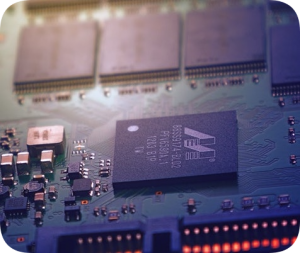 At the beginning of the year, we looked at how an explosion in demand for consumer electronics led to a shortage of microchips across the globe. This semiconductor shortfall has continued in the intervening months and its impact has spread across numerous industries. Along with preventing carmakers from installing vital microchips in vehicles, the shortage has also hindered production of iPads, farming equipment, and even dog grooming machines.
At the beginning of the year, we looked at how an explosion in demand for consumer electronics led to a shortage of microchips across the globe. This semiconductor shortfall has continued in the intervening months and its impact has spread across numerous industries. Along with preventing carmakers from installing vital microchips in vehicles, the shortage has also hindered production of iPads, farming equipment, and even dog grooming machines.
“This particular problem affects all aspects of manufacturing, from little people to big conglomerates,” said Russell Caldwell, president of the manufacturing company CCSI International located in Illinois. His company produces electronic dog-washing booths that dispense shampoo, water, and even air-drying, a product that has become popular at dog parks as well as military bases. Without microchips to place in the machines’ circuit boards, however, CCSI cannot manufacture its dog-washing booths.
Global corporations are facing similar problems, with Apple on course to potentially lose $4 billion in sales due to slower production of iPads and iPhones. The construction giant Caterpillar is also struggling to source chips for its large-scale equipment while Samsung has experienced production delays as well. “When the chip supply tightens, the whole economy suffers,” said technology analyst Glenn O’Donnell. And given the fact that microchips are placed in such a wide array of modern products, it’s likely that the semiconductor shortage will persist for the foreseeable future.
Questions:
- How has the recent microchip shortage affected both large and small companies?
- Do you think some companies should be given priority over others to obtain microchips? Why or why not?
